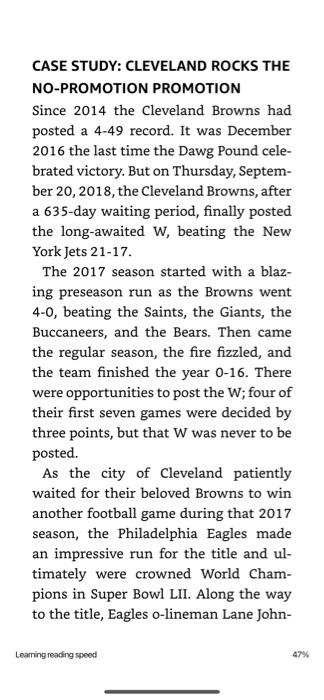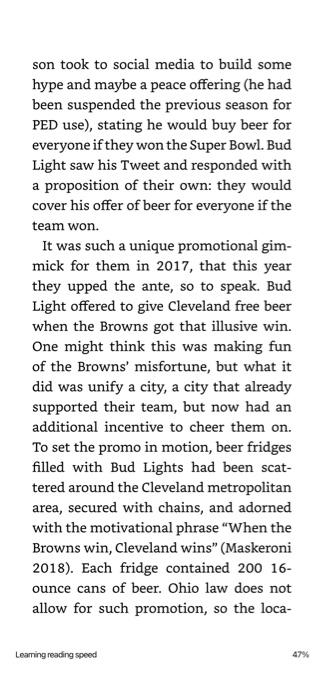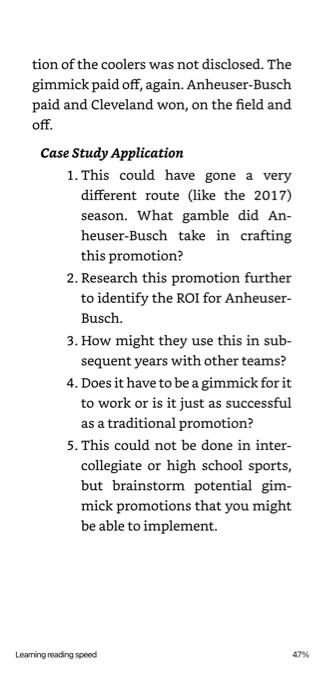Case questions 1 through 5

CASE STUDY: CLEVELAND ROCKS THE NO-PROMOTION PROMOTION Since 2014 the Cleveland Browns had posted a 4-49 record. It was December 2016 the last time the Dawg Pound celebrated victory. But on Thursday, September 20, 2018, the Cleveland Browns, after a 635-day waiting period, finally posted the long-awaited W, beating the New York Jets 21-17. The 2017 season started with a blazing preseason run as the Browns went 4-0, beating the Saints, the Giants, the Buccaneers, and the Bears. Then came the regular season, the fire fizzled, and the team finished the year 016. There were opportunities to post the W; four of their first seven games were decided by three points, but that W was never to be posted. As the city of Cleveland patiently waited for their beloved Browns to win another football game during that 2017 season, the Philadelphia Eagles made an impressive run for the title and ultimately were crowned World Champions in Super Bowl LII. Along the way to the title, Eagles o-lineman Lane John- son took to social media to build some hype and maybe a peace offering (he had been suspended the previous season for PED use), stating he would buy beer for everyone if they won the Super Bowl. Bud Light saw his Tweet and responded with a proposition of their own: they would cover his offer of beer for everyone if the team won. It was such a unique promotional gimmick for them in 2017, that this year they upped the ante, so to speak. Bud Light offered to give Cleveland free beer when the Browns got that illusive win. One might think this was making fun of the Browns' misfortune, but what it did was unify a city, a city that already supported their team, but now had an additional incentive to cheer them on. To set the promo in motion, beer fridges filled with Bud Lights had been scattered around the Cleveland metropolitan area, secured with chains, and adorned with the motivational phrase "When the Browns win, Cleveland wins" (Maskeroni 2018). Each fridge contained 20016 ounce cans of beer. Ohio law does not allow for such promotion, so the loca- tion of the coolers was not disclosed. The gimmick paid off, again. Anheuser-Busch paid and Cleveland won, on the field and off. Case Study Application 1. This could have gone a very different route (like the 2017) season. What gamble did Anheuser-Busch take in crafting this promotion? 2. Research this promotion further to identify the ROI for AnheuserBusch. 3. How might they use this in subsequent years with other teams? 4. Does it have to be a gimmick for it to work or is it just as successful as a traditional promotion? 5. This could not be done in intercollegiate or high school sports, but brainstorm potential gimmick promotions that you might be able to implement










